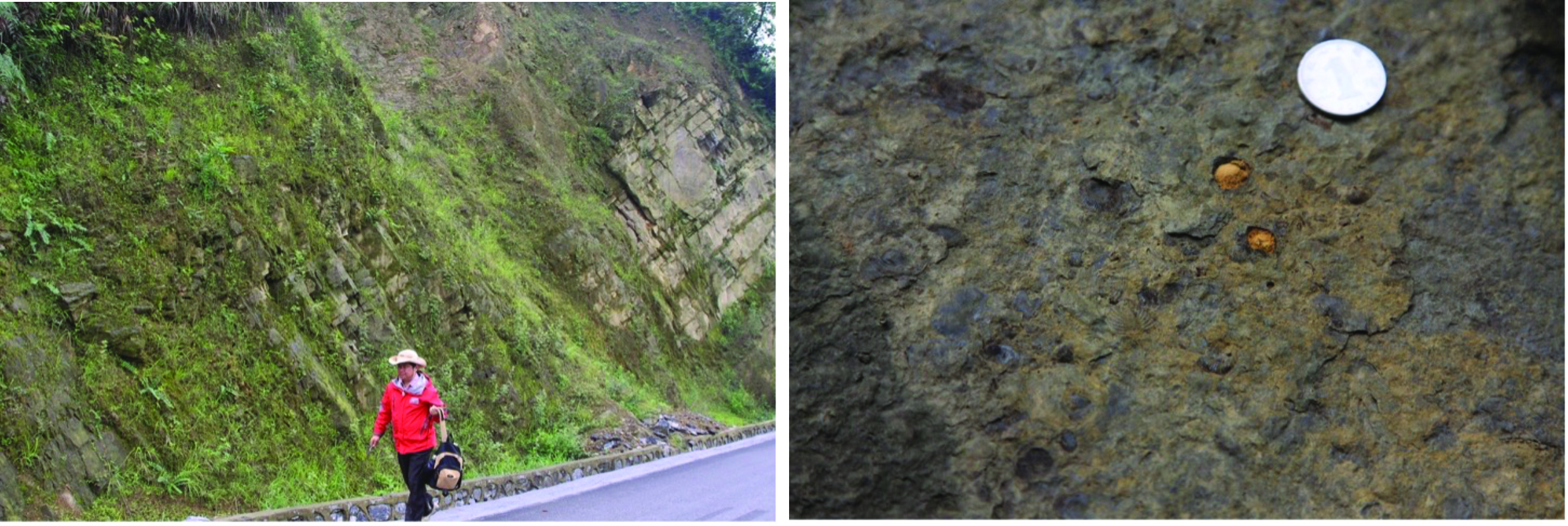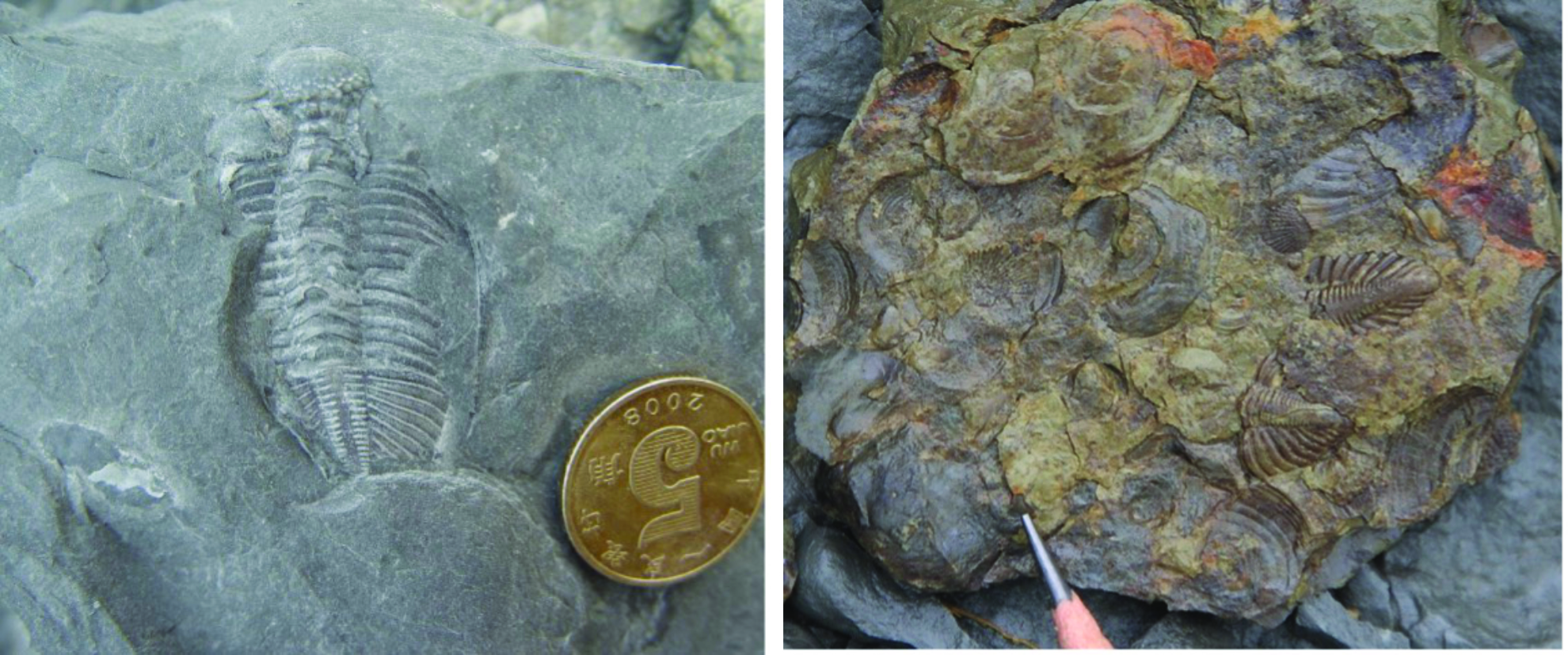Xiushan Fm
Type Locality and Naming
It was named by Ge Zhizhou et al in 1970 (the Nanjing Institute of Geology and Paleontology, China Academy of Sciences, 1974). The type section is situated at the roadside from Xiushan to Rongxi, about 6 km southeast of Rongxi, Xiushan in southeastern Sichuan Province.
Synonym: (秀山组) . The Jiguling Fm and the Raochaguan Fm, proposed by the Eighth Party of Petroleum Reconnaissance Survey, Ministry of Geology (with the type sections locating in the distribution area of the Silurian System, west of Leijiatun, Shiqian County in northeast Guizhou Province) (Zhou Xiyun et al, 1981), correspond respectively to the lower member—the lower and middle parts of the upper member of, and to the upper part of the upper member of, the Xiushan Fm at the Leijiatun section in Shiqian County. The Wujiayuan Fm with the type section at Bidong, Longshan County in northwest Hunan Province (Hunan Bureau of Geology and Mineral Resources, 1988; Huang Weipei, 1986), and the Laziqiao Fm located at Laziqiao of Bidong, correspond respectively to the upper member of, and to the lower member of, the Xiushan Fm located in southeast Sichuan and northeast Guizhou, with similar lithology and basically identical fossils respectively. Hou Defeng (1944) called the Upper Silurian exposed in Pengshui, Shizhu and Qianjiang “the Cronocephalus Shale”, which is roughly the Xiushan Fm.
Lithology and Thickness
It is represented by a suite of yellow green, blue gray clastic strata. Lower member consists of yellow green quartzose siltstone, silty pelite and micritic sandstone. Upper member is composed of yellow green, blue green pelite and siltstone, often intercalated with thin-bedded sandy limestone or limestone lenses (Figure 1).
[Figure 1 The sandstone from the lower part of Xiushan Fm(left) and the mudstone from the middle-upper part of Xiushan Fm(right) at the Rongxi section, Xiushan, Chongqing]
Relationships and Distribution
Lower contact
The formation rests conformably onto the underlying Rongxi Fm (the Lower Red Bed of marine facies) at columns 51 and 52; and on the Magongtan Fm at column 49.
Upper contact
The formation is conformably below the overlying Huixingshao Fm (the Upper Red Bed of marine facies).
Regional extent
The formation is widely distributed in southeast Sichuan, northeast Guizhou, northwest Hunan and southwest Hubei, and also in southwest Sichuan as well. It is steady in lithofacies and bio facies with the thickness ranging from 400-600 m.
GeoJSON
Fossils
The lower Member bears minor lowly differentiated shelly fossils including brachiopods Mesoleptostrophia, Nalivkinia, Nucleospira, Striispirifer, Eospirifer, etc.; trilobites Encrinuroides, Astroproetus and gastropod, Pterygotus, etc.; conodonts Spathognathodus parahassi, S. guizhouensis, etc. The upper Member yields rich, rather highly differentiated shelly fossils (occasionally graptolite as well), including brachiopods Nalivkinia magna, Salopinella minuta, Spinochonetes notata, Jonesea grayi, Nucleospira pulchra, Nikiforovaena flabellum, Striispirifer hsiehi, etc.; trilobites Coronocephalus, Coronaspis, Rongxiella, Kailia, etc. (Figure 2); cephalopods Sichuanoceras, Jangziceras, Eurirgoceras, Kailiceras, etc.; bivalve Modiomorpha; rostroconchid Technophora; gastropods Bellerophon,Girvania; graptolites Stomatograptus sinensis, Monograptus guizhouensis, etc.; conodont Pterospathodus celloni, etc.; chitinozoa Angochitina longicollis and crinoid, tabulat, etc.
[Figure 2 the trilobite Coronocephalus rex (left) and fragments of brachiopods and trilobites (right) in the Xiushan Fm.]
Age
Depositional setting
Additional Information

